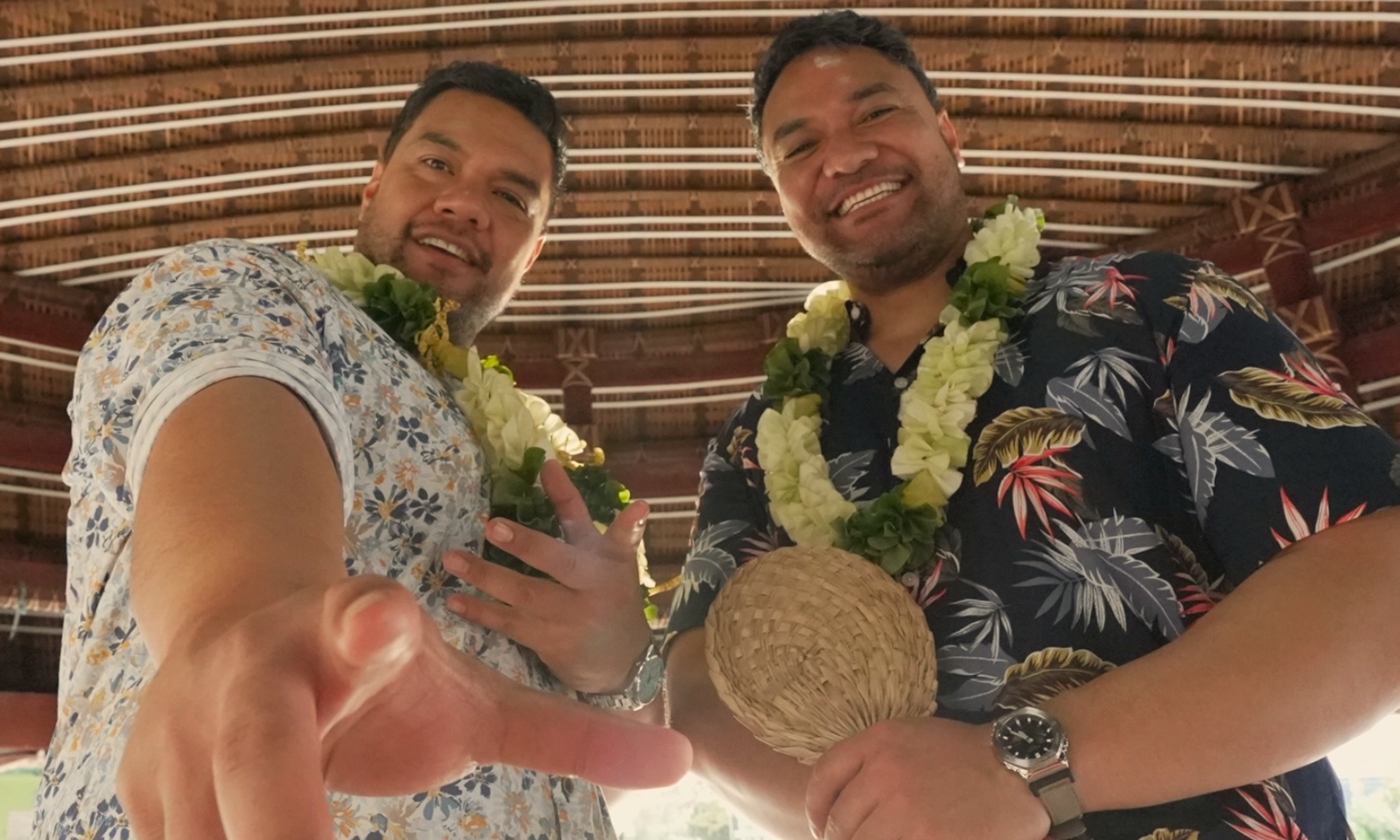
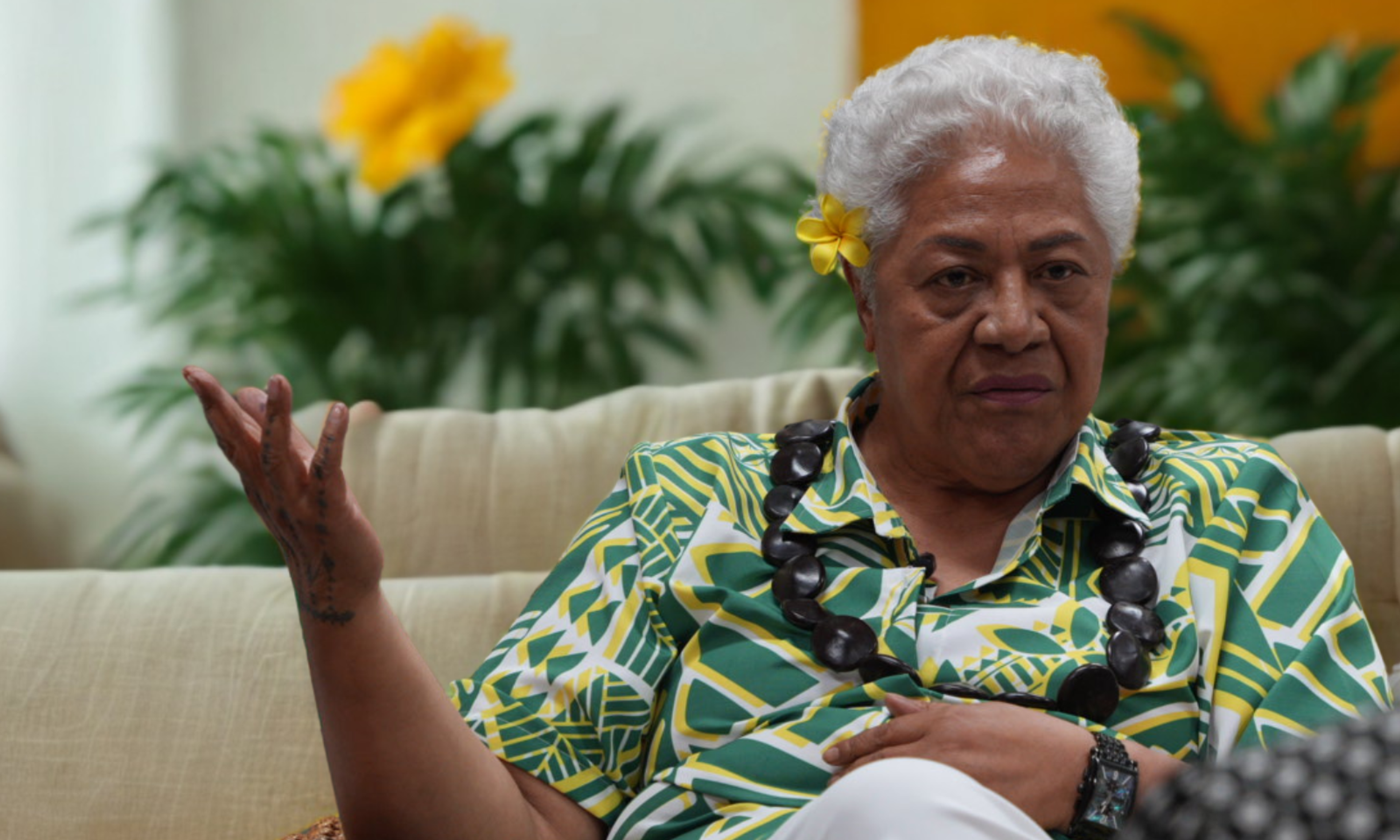
Prime Minister Fiamē Naomi Mataafa says the split from FAST was a fundamental difference in perspective on the rule of law and integrity.
Photo/Anthony Perez
Principle over politics: Fiamē's vision put to the test in general election
In a pivotal vote marked by unpredictability, Sāmoans prepare to choose between competing visions for their country’s future.



Realm relations in focus as Tokelau-NZ marks 100-year history

‘One of our most trusted leaders’: Tributes flow for a beloved rangatira
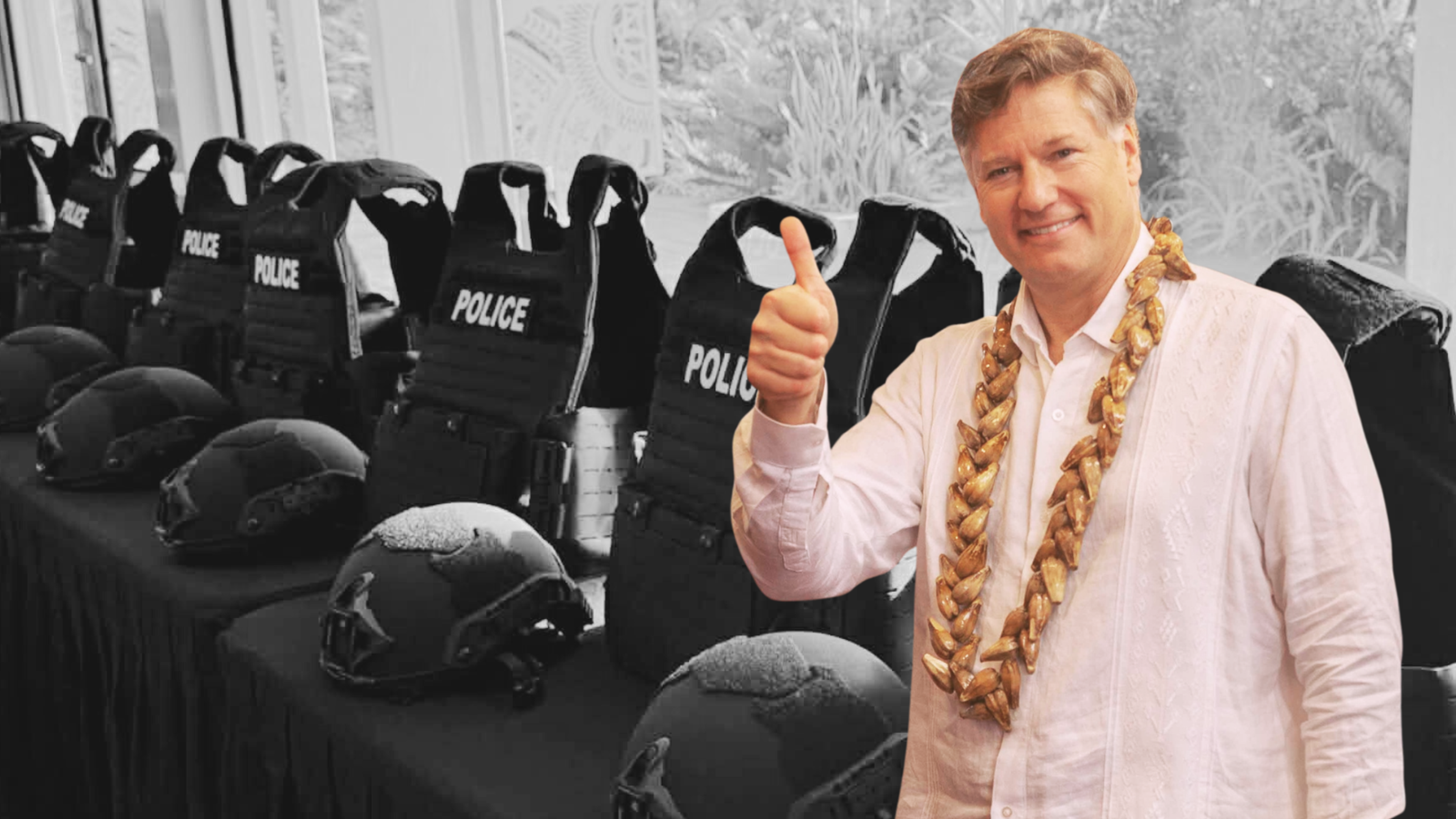


The Sāmoan Tenor named Pati who turned disadvantage into an operatic destiny

Realm relations in focus as Tokelau-NZ marks 100-year history

‘One of our most trusted leaders’: Tributes flow for a beloved rangatira

Sāmoa's caretaker Prime Minister Fiamē Naomi Mataʻafa says the dissolution of Parliament and subsequent political upheaval stem from her decision to prioritise principles over politics, particularly over the split with the Faatuatua i le Atua Sāmoa ua Tasi (FAST) Party due to concerns over the rule of law and integrity.
She says she is promoting a disciplined and restorative political movement under her newly-formed Sāmoa Uniting Party or the SUP.
Facing one of her biggest challenges in her political career, the former FAST leader says key issues such as the cost of living, health, and education are also priorities for SUP heading into next week’s general election.
In an exclusive interview with PMN News, Fiamē advocates for stronger relationships between the central government and village councils, while suggesting that the Village Fono Act may need further development.
Sāmoans will head to the polls next week in what many are calling the most unpredictable in living memory.
Three major parties - FAST, Human Rights Protection Party (HRPP), and SUP - are vying for power alongside more than 40 independent candidates.
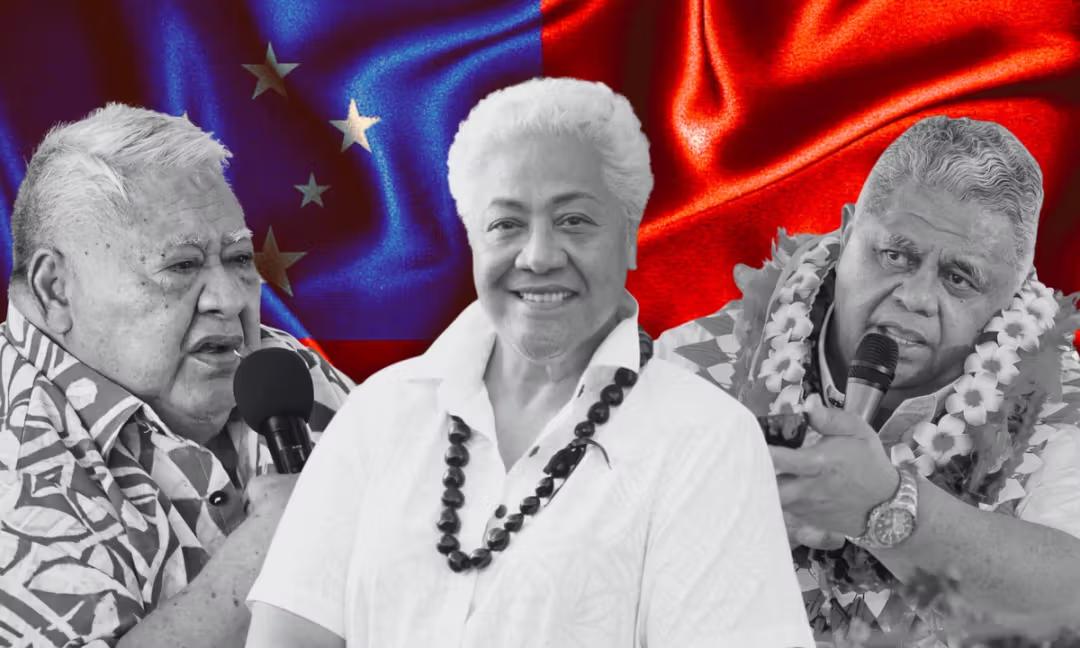
The three key figures in this year's general election: From left, Tuilaʻepa Saʻilele Malielegaoi, Fiamē Naomi Mataʻafa, and Laaulialemalietoa Leuatea Polataivao Schmidt. Photo/PMN News
Each party leader presents markedly different visions for Sāmoa's future. This election not only determines who will govern for the next five years, but also whether Sāmoa can restore stability after months of political upheaval.
At the centre of this unrest is caretaker Prime Minister Fiamē Naomi Mataʻafa - the country’s first woman leader. She is fighting not only to keep her place in government, but also to prove that principle is at the heart of her campaign.
Fiamē candidly discusses the stakes of the election. “The single most important issue is choice. Voters have more options than ever. But across all parties, the cost of living, health, and education are pressing. With our labour force stretched thin, people will be looking closely at what each manifesto offers to ease the burden.”
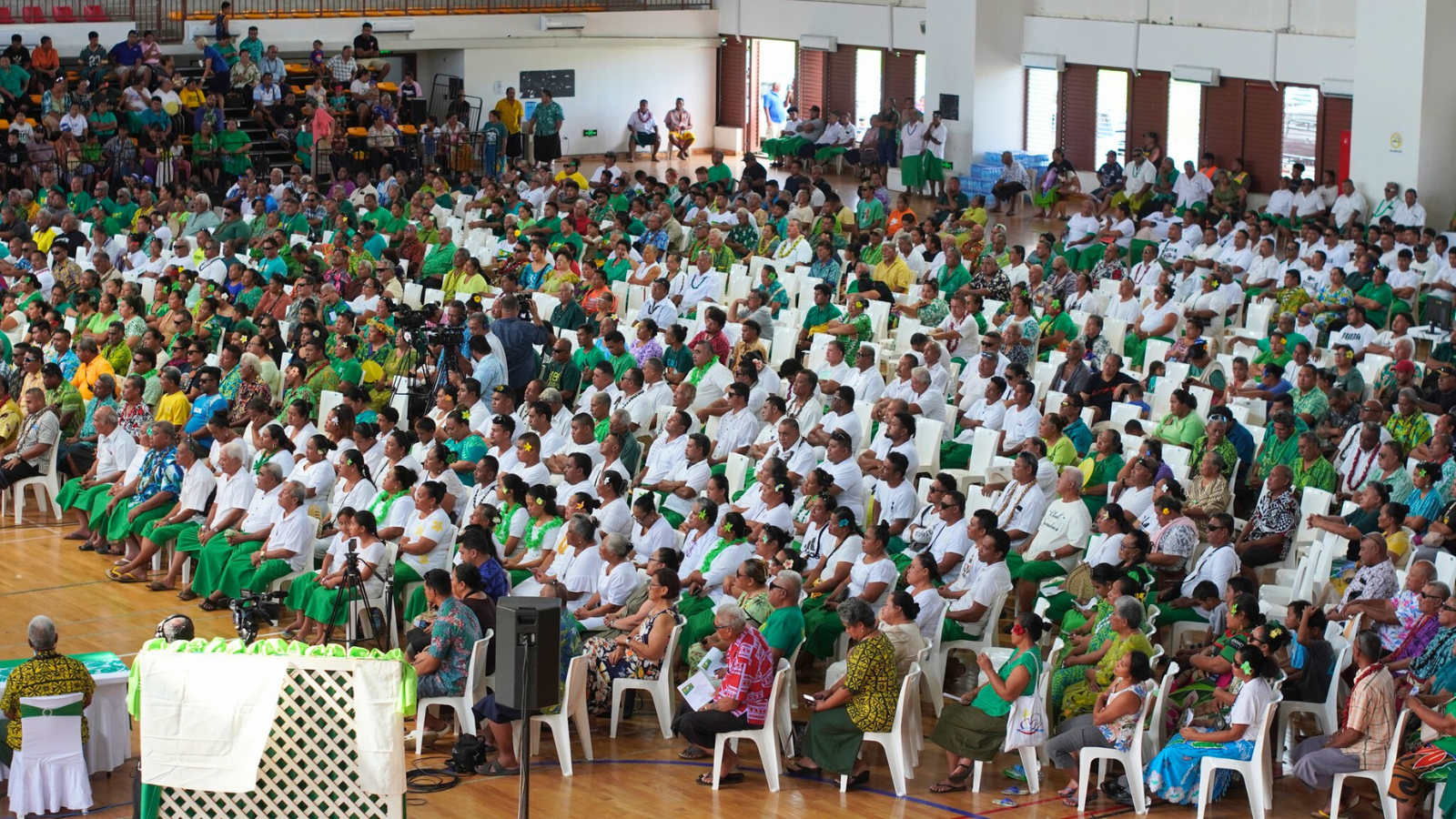
Supporters at the Samoa Ua Potopoto launch. Voters have plenty of choice heading in to the 29 August election. Photo/Samoa Ua Potopoto
Fiamē’s fledgling party is positioning itself as a disciplined and restorative political movement, building on promises made during the FAST era while focusing on policies that ensure governance at all levels is grounded in law and integrity.
The Prime Minister says one way to achieve this is by strengthening the relationship between the central government and village councils, as outlined in the Village Fono Act. She also suggests that the law may need further development to clarify how the relationship should function, especially as Sāmoa evolves and faces modern challenges.
“If we’re wanting a more impactful, decentralised approach to our governance and development then, especially in our cultural context… we probably need to really utilise the Fa‘asāmoa to the fullest potential.”
The dissolution of Parliament in June capped months of turmoil. Fiamē’s minority government collapsed after failing to pass the 2025/2026 budget - a situation exacerbated by a bitter split with FAST.
She argues that the rupture was not politically-motivated but about upholding principle.
“The actual split came down to a fundamental issue… upholding the rule of law and the integrity of public office. Do I keep the solidarity of the group, or do I work on principle? I chose principle.”
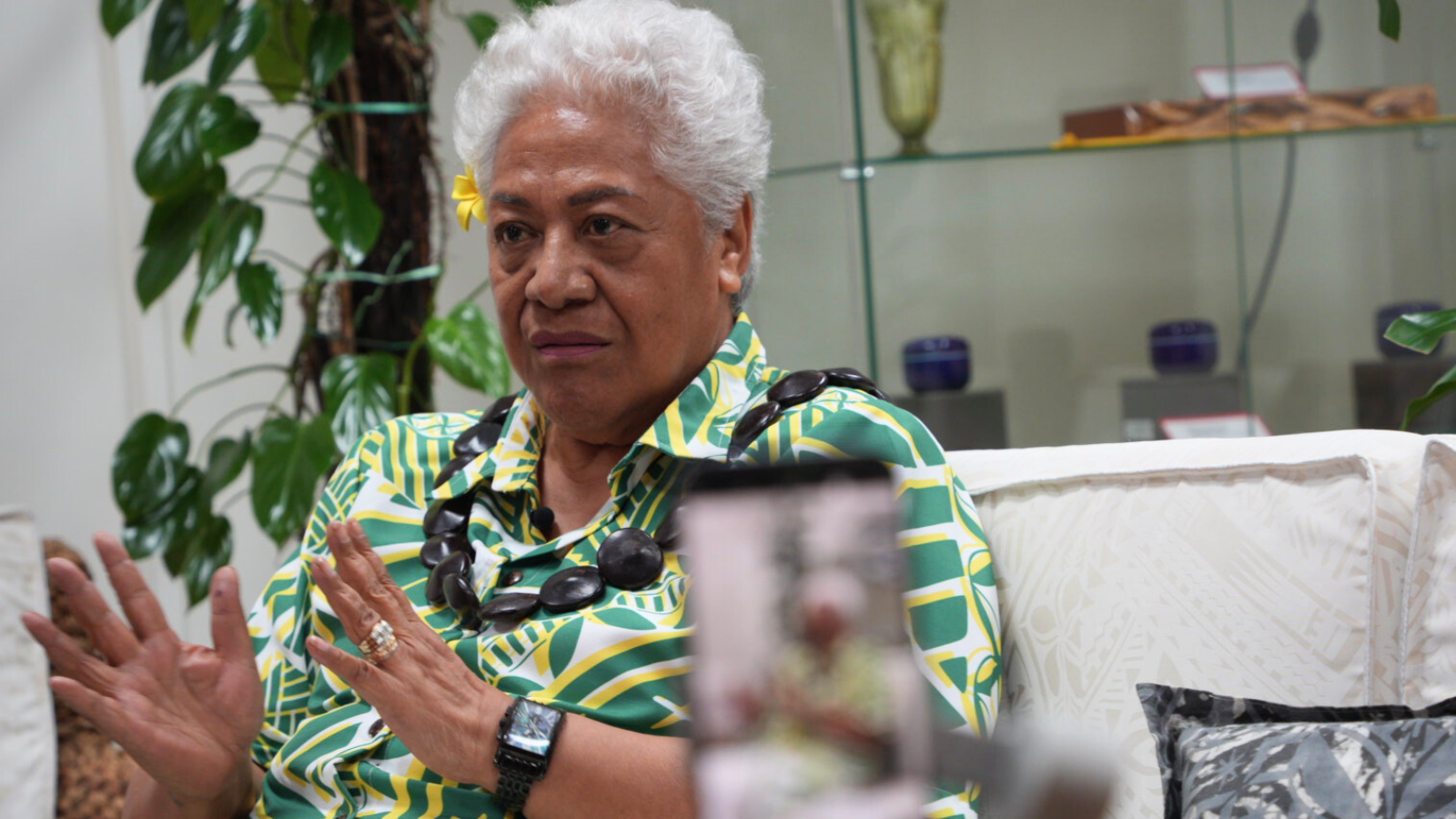
Fiamē Naomi Mataʻafa says her split from FAST was about protecting the rule of law. Photo/Anthony Perez
Her remarks reference Laaulialemalietoa’s criminal charges, which include conspiracy to pervert the course of justice.
“In every other proper democracy, it’s automatic - when you face charges, you step aside. He resigned once before in 2016 for the same reason. Why not now?”
Laaulialemalietoa contends the charges are politically-motivated and that the courts should decide the outcome. He insists that FAST’s campaign focuses on delivering its family-first promises.
Fiamē’s decision to leave FAST and form SUP was dramatic and divisive. Critics have interpreted it as a sign of instability.
But Fiamē counters that history is on her side, pointing to the turbulent early years of a previous HRPP government, during which administrations collapsed within short periods.
“Political parties are always evolving,” she says. “What matters is whether we uphold the foundations of democracy.”
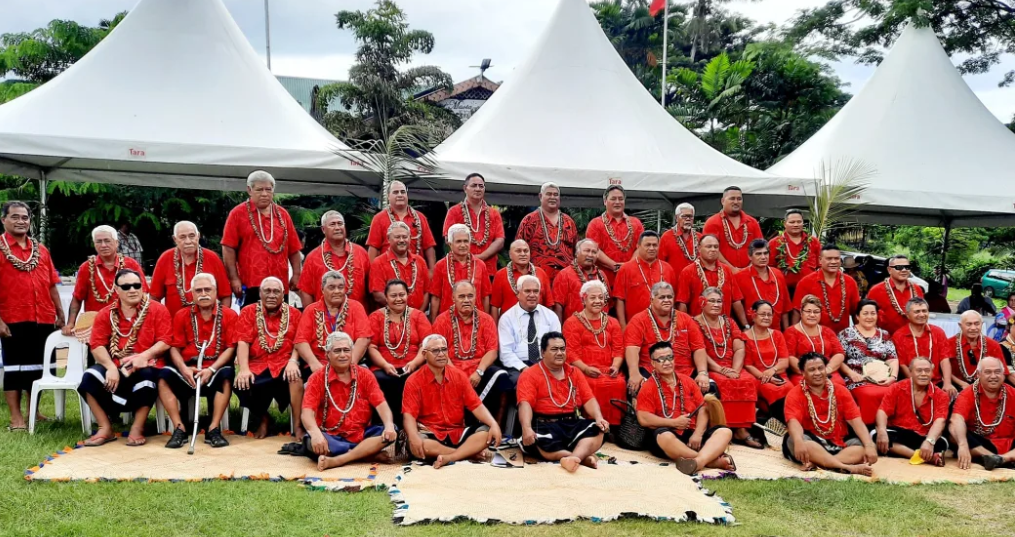
Happier times for the Fa'atuatua i le Atua Samoa ua Tasi (FAST). Photo/Radio New Zealand
Fiamē acknowledges that her leadership style, often described as hands-off, has drawn scrutiny. While she refrains from taking responsibility for the government’s collapse, she admits that she could have taken a firmer approach earlier in her term.
She says her leadership style is to let her Cabinet Ministers manage their portfolios themselves.
Defending herself against claims that her frequent overseas travels contributed to a lack of unity and cohesion within her leadership team, Fiamē says travel is a necessary part of governance.
“I don’t think I flew in and out any more than my predecessor did. Ministers have always travelled - for regional, sub-regional, and international responsibilities.”
A report by the Sāmoa Observer in November last year highlighted that 11 senior government officials were off-island while only four stayed behind. The local daily called her silence on these issues of creating a “leadership vacuum”, which allowed some ministers to act independently.
For voters, the cost-of-living crisis is a pressing concern. All three parties have placed it at the centre of their manifestos. SUP’s pledges include cutting the Value Added Goods and Services Tax (VAGST) from 15 per cent to 12 per cent, scrapping tax on electricity, and refunding 20 per cent of income tax to taxpayers.
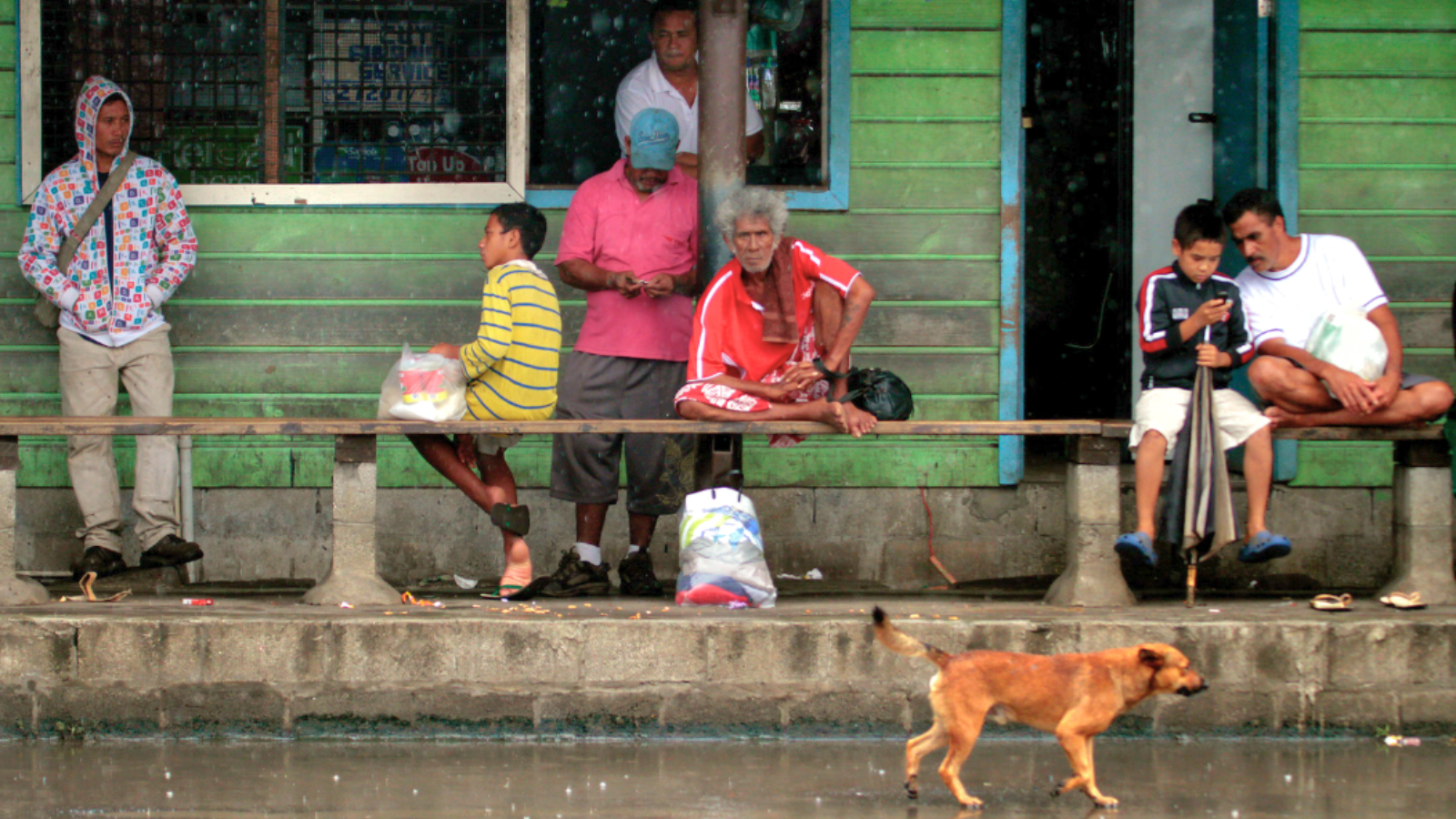
The cost-of-living crisis in Sāmoa has been at the forefront of political party campaigns. Photo/Asian Development Bank
But Fiamē also emphasises the need to address long-term challenges. According to her, Sāmoa's labour shortages require urgent policy shifts. “We need 300 doctors, and we have under 200. Growing our own is not enough. We must import skills to keep the country viable.”
On women’s representation, Fiamē has been a strong advocate, championing a bill to clarify and align Sāmoa's constitutional 10 per cent quota of seats with a court ruling that raised the minimum number of women MPs to six. She argues that the reform is about consistency and transparency. “The law must reflect the court’s decision. Otherwise, it’s contradictory.”
Amid the political discussions, Fiamē is also addressing public health issues and social crises in the country. A dengue outbreak has led to school closures and placed undue pressure on hospitals.
Meanwhile, the Police Commissioner has labelled methamphetamine use as an “epidemic,” linking it to organised crime and rising violence.
Earlier this year, Sāmoa recorded its biggest-ever methamphetamine bust, involving a $2.5 million shipment allegedly imported by a local supermarket.
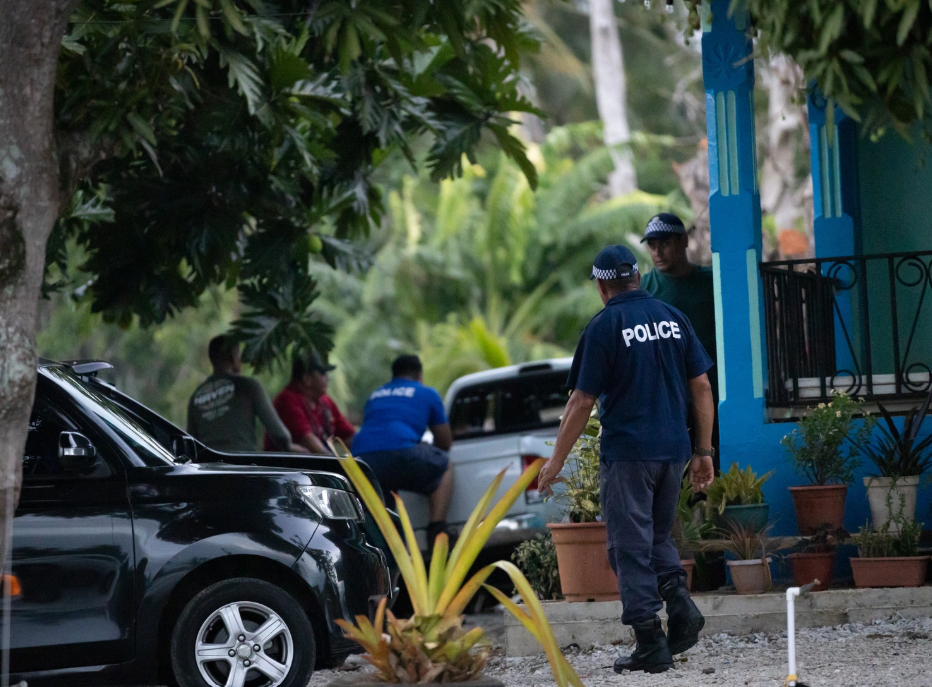
Police raids are increasing in frequency, reflecting growth in methamphetamine in communities. Photo/Samoa Observer
Fiamē says the government’s approach to this crisis is multipronged, focusing on strengthening border control, building the capacity of customs, police, and judicial systems, and laying the groundwork for rehabilitation services.
"Border control is key,” she says, while also conceding that Sāmoa lacks a dedicated rehabilitation centre. “It probably does need to move towards that.”
As Minister of Foreign Affairs for the last four years, Fiamē is also focused on Sāmoa's place in the region. With Australia, New Zealand, the United States, and China all vying for influence in the Pacific, she points to the fact that Sāmoa's relationships with these countries are long-standing, not new.
“We’re celebrating 50 years with China. This isn’t sudden. What’s changed is the contest between the bigger powers. The Pacific’s general attitude is - do your stuff over there, but we’ll carry on working with you as we’ve been doing.”
Development partners are critical to Sāmoa's economy. New Zealand and Australia are home to vast numbers of Sāmoa's diaspora, and their seasonal employment schemes are a major source of remittances that support families and communities.
China’s direct aid is most visible in infrastructure projects, including schools, government buildings, roads, and the new Sāmoa Police Academy. The United States launched a Pacific Partner Strategy three years ago that is dedicated to long-term engagement with Pacific Islands nations, focusing on climate change, development aid, security, and regional unity.
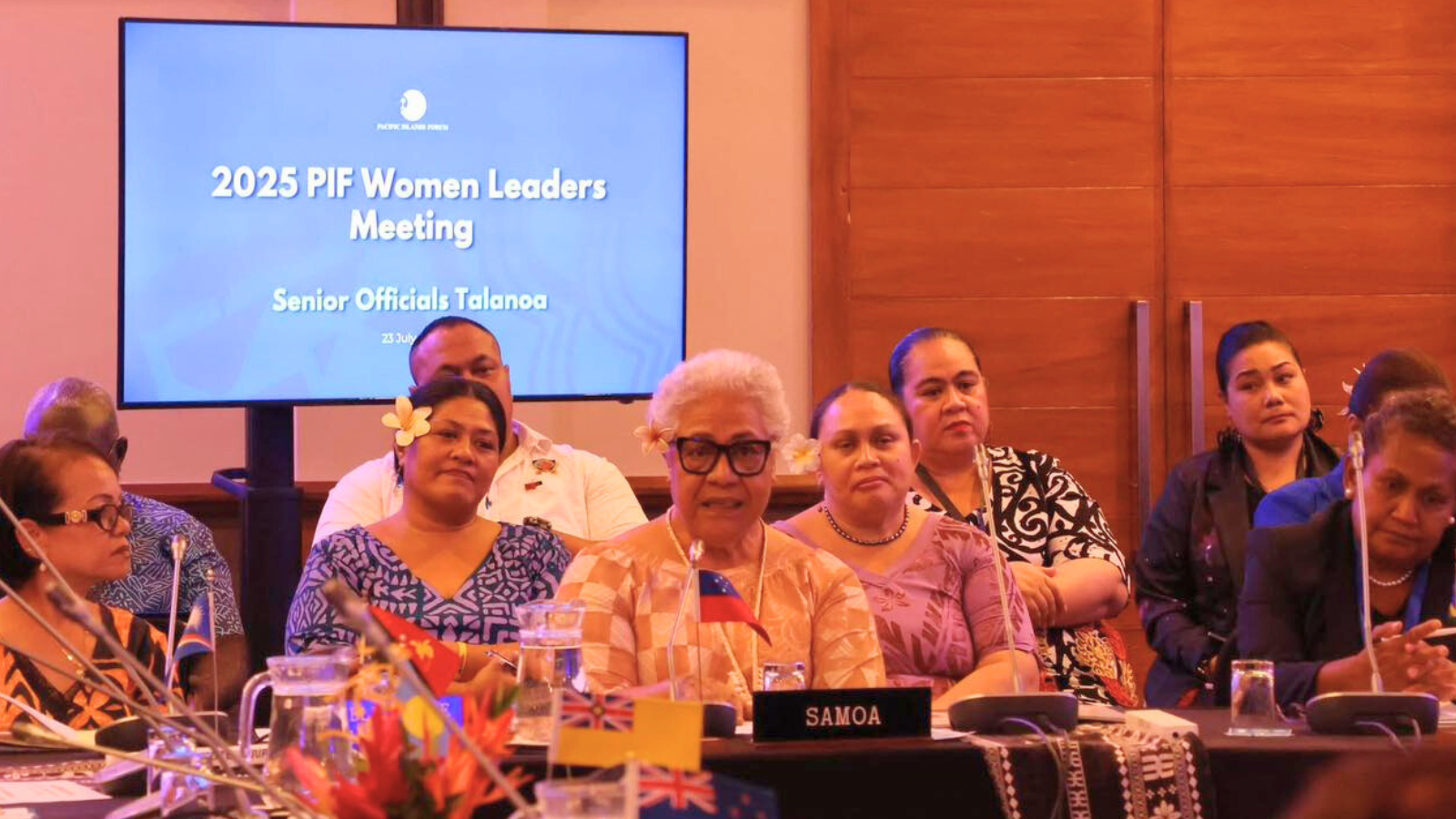
Fiamē Naomi Mata'afa at a recent Pacific Islands Forum meeting. Photo/Samoa Ua Potopoto
On regional security, Fiamē favours working closely with Aotearoa and Australia. “It makes more sense to work with Australia and New Zealand. It’s our common area of protection.”
Fiamē also supports the Solomon Islands’ recent proposal to limit the participation of external partners in the upcoming Pacific Islands Forum. “Given the contested space, it’s not a bad idea to let the Pacific be, at this time.”
Like in 2021, independents are expected to play a crucial role in the upcoming election. By the end of Parliament in June, the margins between parties were very slim, with FAST holding 20 seats, HRPP with 18, and Fiamē’s SUP 15.
This election has more than 180 candidates, and no party appears favoured to win a majority, making coalition-building critical. Fiamē says discussions with independents are already underway. “There’s that possibility - not only between parties, but with independents.”
FAST’s leader, Laaulialemalietoa, has ruled out the option of alliances with HRPP or SUP. But Fiamē, more cautiously, says that the election results will dictate the available options.
When asked if she might one day seek to break another barrier as Head of State, Fiamē was direct: “That is not my intention. I entered politics because that is the space I want to work in.”
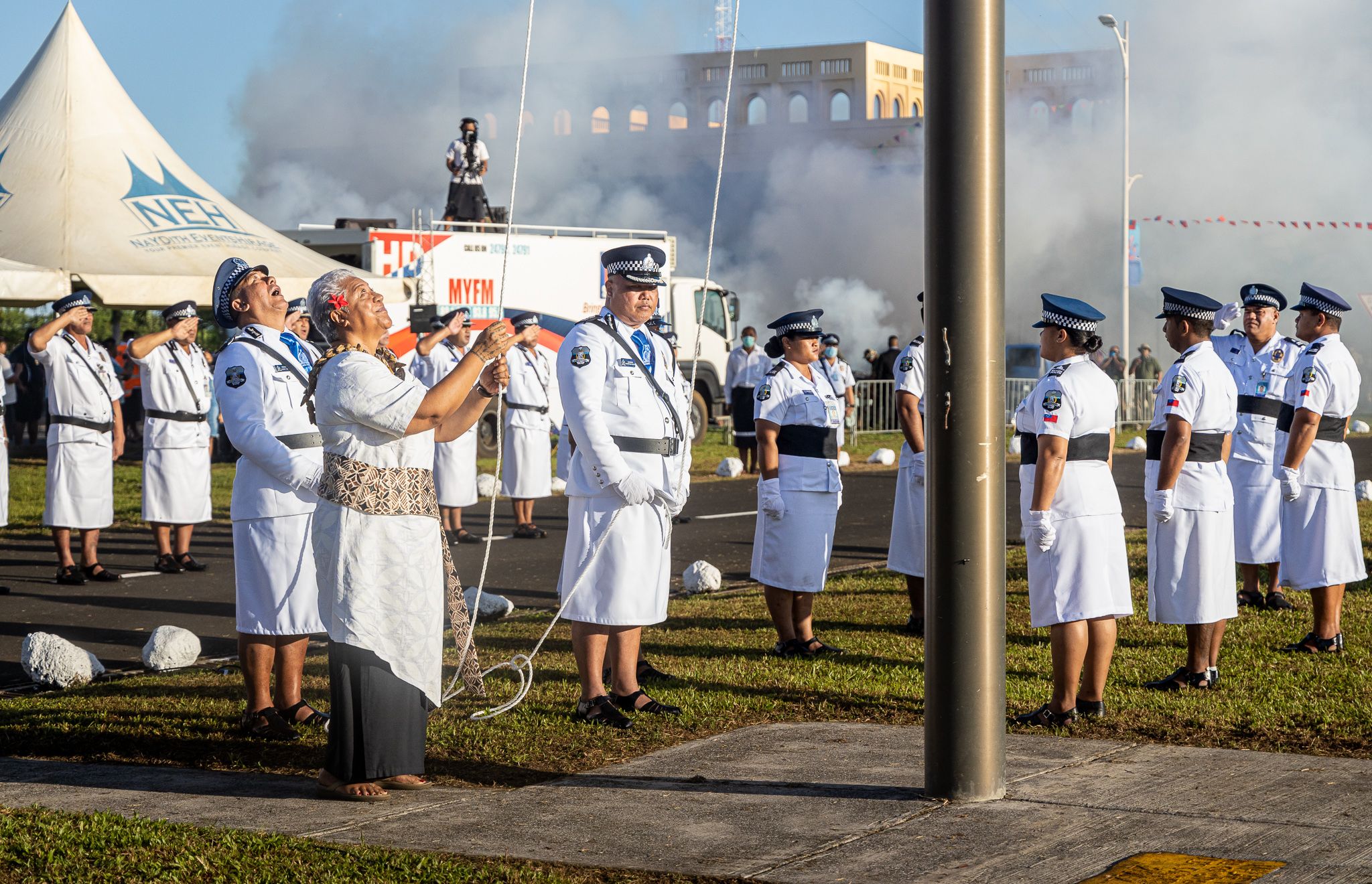
At the 60th Independence Day celebrations, raising the flag as Prime Minister. Photo/Junior S Ami
Instead, she frames her legacy in terms of sovereignty and belonging. “I would like a Sāmoa where Sāmoans want to stay. We’ve always faced the question of whether we are viable as a sovereign nation. But our people leave for better opportunities abroad. We must create those opportunities here.”
She pointed to Sāmoa's customary land, which comprises 80 per cent of the country, as an undervalued asset. “So many people overseas are landless and homeless. Here, we have land. We must value what we have.”
She says this election is about more than just a contest for power; it is a moment of reckoning for what kind of Sāmoa the people want to build. Will it be a country of integrity, stability, or fracturing loyalties?
Fiamē’s message is clear: principles should take precedence over politics. “Government must invest in people, in organisations, in communities, so that we can all build and develop together.”
As the nation prepares for the polls, her vision of “a Sāmoa where people want to stay” may ultimately shape the future of both her leadership and the country. Still, with the complexities of coalition-building, the final makeup of the government may hinge not just on principle, but also on compromise.
Listen to Fiamē Naomi Mata'afa's full interview below.